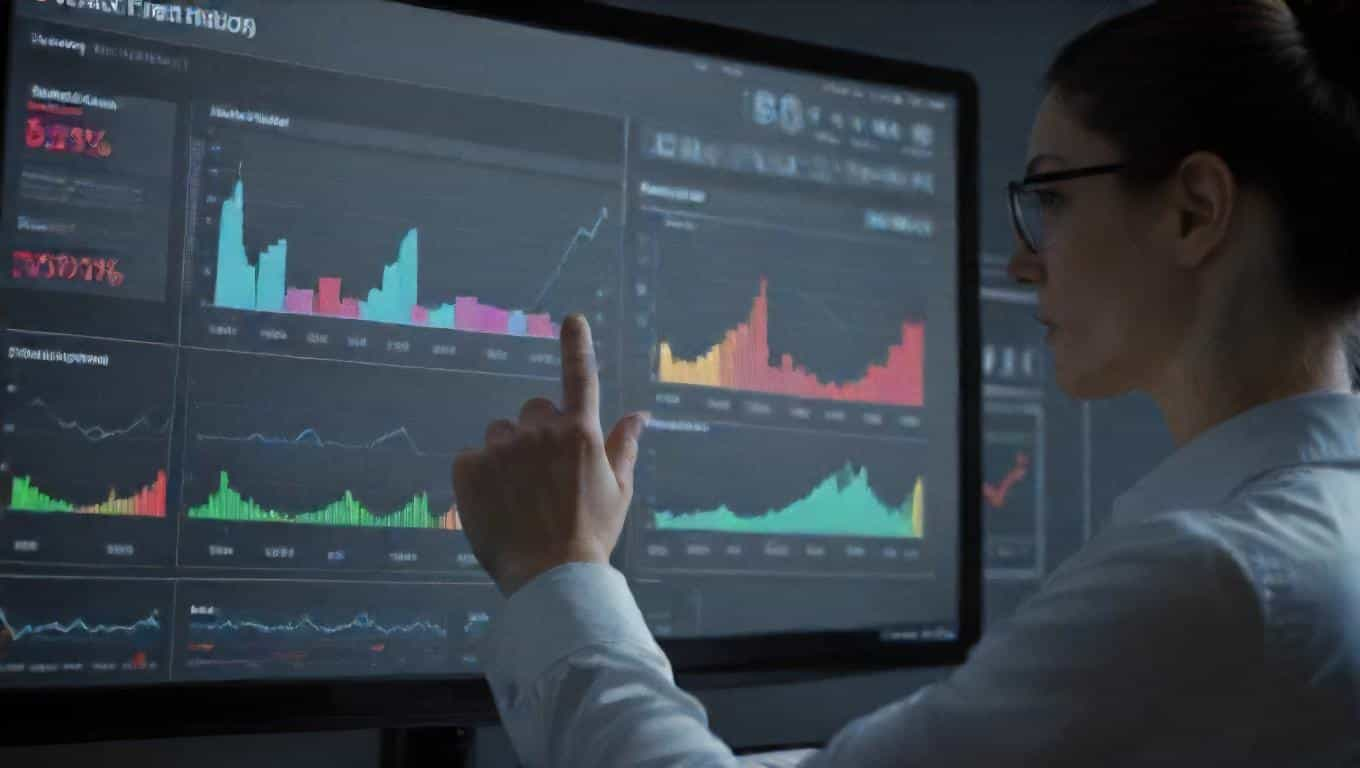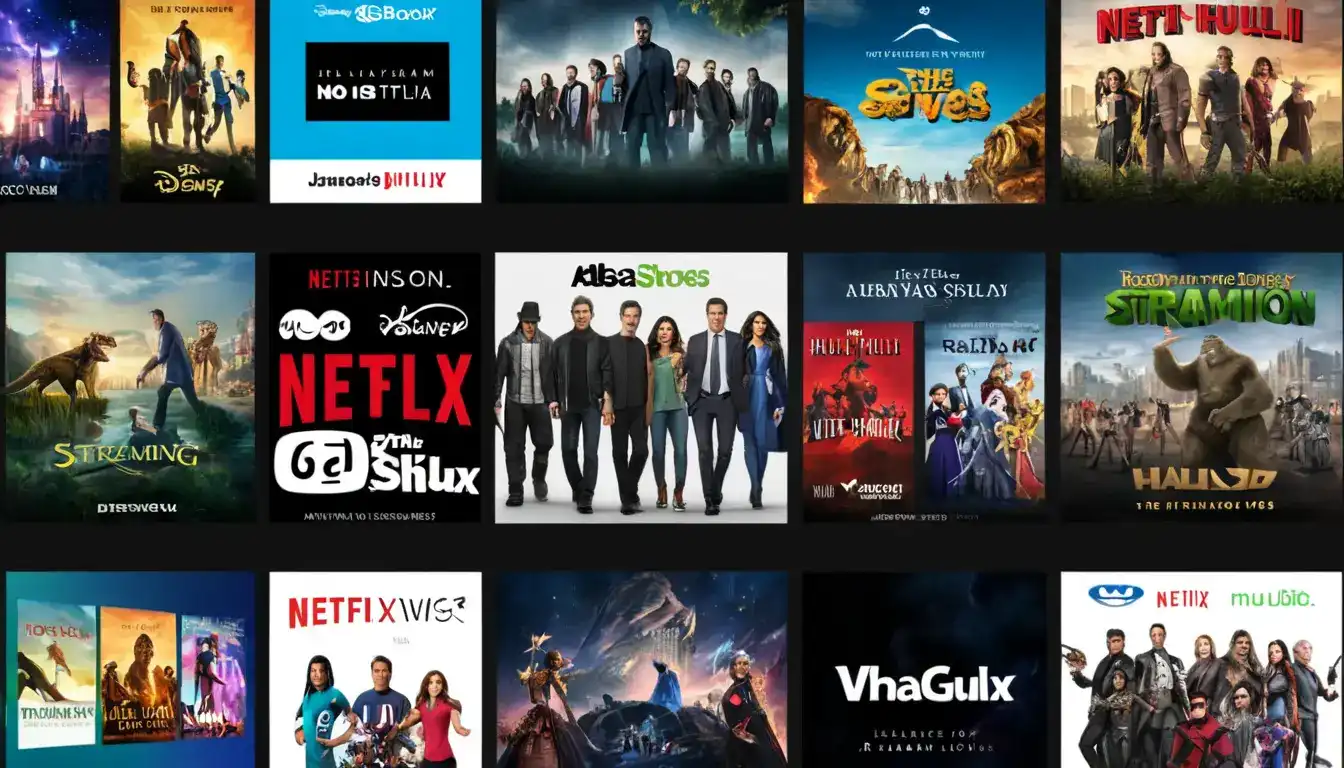Blockchain Beyond Cryptocurrency: Innovative Uses in Various Industries
Emily Willis

Photo: Blockchain Beyond Cryptocurrency: Innovative Uses in Various Industries
When people hear the term "blockchain," they often think of cryptocurrencies like Bitcoin. However, blockchain technology has far-reaching applications beyond digital currencies. This technology, known for its transparency, security, and decentralization, is transforming various industries in ways that many people might not expect. In this article, we will explore how blockchain is being used innovatively across different sectors, making complex processes simpler and more secure.
Understanding Blockchain Technology
Before diving into its applications, it’s essential to understand what blockchain is. At its core, blockchain is a decentralized digital ledger that records transactions across multiple computers. This ensures that the recorded transactions cannot be altered retroactively, providing a high level of security and transparency. Each block in the chain contains a list of transactions, and once a block is added, it is linked to the previous block, creating a chain of blocks, hence the name "blockchain."
Supply Chain Management
One of the most promising applications of blockchain technology is in supply chain management. Traditional supply chains involve multiple intermediaries, making it challenging to trace the origin and journey of products. Blockchain can solve this problem by providing a transparent and immutable record of every transaction along the supply chain.
1. Improving Traceability
With blockchain, companies can track products from the point of origin to the final destination. This transparency helps in verifying the authenticity of products, ensuring they are not counterfeit. For example, in the food industry, blockchain can track the journey of a product from farm to table, allowing consumers to see where their food comes from and ensuring safety and quality.
2. Enhancing Efficiency
Blockchain eliminates the need for intermediaries by allowing direct transactions between parties. This streamlining reduces delays and errors, making the supply chain more efficient. Companies can save time and money by automating processes and reducing paperwork, leading to faster delivery times and lower costs.
Healthcare
The healthcare industry faces significant challenges in managing patient data securely and efficiently. Blockchain technology offers a solution by providing a secure and decentralized way to store and share medical records.
1. Secure Patient Data
Blockchain ensures that patient data is stored securely and can only be accessed by authorized parties. This reduces the risk of data breaches and ensures patient privacy. Medical records can be easily shared between healthcare providers, improving the accuracy and speed of diagnosis and treatment.
2. Streamlining Processes
Blockchain can streamline administrative processes in healthcare, such as billing and insurance claims. Smart contracts, which are self-executing contracts with the terms directly written into code, can automate these processes, reducing errors and fraud. This can lead to faster claims processing and lower administrative costs.
Finance
While blockchain’s association with cryptocurrency is well-known, its applications in the broader financial sector are equally transformative.
1. Cross-Border Payments
Traditional cross-border payments can be slow and expensive due to the involvement of multiple intermediaries. Blockchain can facilitate faster and cheaper cross-border transactions by enabling direct transfers between parties. This reduces the need for intermediaries and lowers transaction fees, making international payments more accessible.
2. Fraud Prevention
Blockchain’s transparency and immutability make it an excellent tool for preventing fraud. Every transaction is recorded on a public ledger, making it difficult to alter or falsify information. This can help in detecting and preventing fraudulent activities in financial transactions, providing a higher level of security.
Real Estate
The real estate industry involves numerous complex transactions that require verification and documentation. Blockchain technology can simplify these processes by providing a secure and transparent way to manage property transactions.
1. Property Transactions
Blockchain can streamline property transactions by providing a transparent record of property ownership and transfer. This reduces the need for intermediaries, such as lawyers and escrow agents, and speeds up the transaction process. Buyers and sellers can verify property details and ownership directly on the blockchain, ensuring a secure and efficient transaction.
2. Smart Contracts
Smart contracts can automate various aspects of real estate transactions, such as rental agreements and property sales. These contracts execute automatically when predefined conditions are met, reducing the need for manual intervention. This can lead to faster and more efficient transactions, lowering costs and reducing the risk of disputes.
Voting Systems
Ensuring the integrity of voting systems is crucial for democratic processes. Blockchain technology can provide a secure and transparent way to conduct elections, reducing the risk of fraud and increasing voter confidence.
1. Secure Voting
Blockchain can ensure that votes are recorded accurately and cannot be altered. Each vote is recorded as a transaction on the blockchain, providing a transparent and immutable record. This reduces the risk of tampering and ensures that the election results are accurate and trustworthy.
2. Increasing Accessibility
Blockchain can make voting more accessible by enabling secure online voting. Voters can cast their ballots from anywhere, reducing the need for physical polling stations and making it easier for people to participate in elections. This can increase voter turnout and ensure that more voices are heard in the democratic process.
Intellectual Property
Protecting intellectual property (IP) is a significant challenge in the digital age. Blockchain can provide a secure and transparent way to manage IP rights, ensuring that creators receive proper recognition and compensation for their work.
1. Proof of Ownership
Blockchain can provide a transparent record of IP ownership, ensuring that creators can prove their rights to their work. This can help in resolving disputes and ensuring that creators receive proper credit and compensation.
2. Royalty Payments
Smart contracts can automate royalty payments for IP, ensuring that creators receive their fair share of revenue. These contracts execute automatically when predefined conditions are met, reducing the risk of errors and delays in payment. This can provide a more efficient and transparent way to manage IP rights and compensation.
Conclusion
Blockchain technology is proving to be a game-changer across various industries, offering innovative solutions to complex problems. Its ability to provide transparency, security, and efficiency makes it an invaluable tool in modern technology. From supply chain management and healthcare to finance, real estate, voting systems, and intellectual property, blockchain is transforming the way we conduct transactions and manage information.
As blockchain technology continues to evolve, we can expect to see even more innovative applications emerge, further revolutionizing industries and improving our daily lives. Embracing this technology and exploring its potential beyond cryptocurrency will be key to unlocking new opportunities and creating a more secure and efficient world.
Latest ✨
View AllDiscover the essential qualities required to become a successful leader, from integrity and empathy to communication and adaptability. Learn how to develop these traits to inspire and motivate your team
Emily Willis
top digital marketing trends for 2024, including the rise of AI, the importance of user experience, video marketing dominance, influencer marketing, privacy and data security, sustainability and ethical marketing, and emerging trends like AR/VR, metaverse marketing, blockchain, and NFTs. Specific strategies are provided for leveraging AI for personalized customer experiences, enhancing user experience for mobile users, creating engaging video content, building authentic influencer partnerships, prioritizing data privacy and security, integrating sustainability and ethical practices.
Emily Willis
Europe is full of rich culture, with ten cities offering enriching cultural experiences. From the romance of Paris to the splendor of Rome and the artistic flair of Barcelona, each city has its own unique charm and heritage.
Emily Willis
Proper nutrition is essential for optimal brain function during exams. Foods rich in complex carbohydrates, lean protein, healthy fats, and hydration can help maintain energy levels and focus. Smart snack options during exams include fresh fruits, vegetables with hummus, trail mix, yogurt with granola, and dark chocolate.
Emily Willis
Business
View All
August 4, 2024
Building a Consistent and Inspiring Personal Brand Through Online PlatformsIn today's digital age, it is important to establish a strong personal brand in order to stand out in a competitive landscape. This can be done by following practical steps such as defining your brand identity, identifying your target audience, creating a compelling online presence, crafting quality content, engaging with your audience, leveraging social media effectively, networking and collaborating, monitoring and adapting, showcasing your authenticity, and seeking professional guidance if needed. Building a personal brand requires dedication, authenticity, and strategic planning, but it can lead to a memorable and influential brand that resonates with others in the digital world.
Emily Willis

August 4, 2024
Strategies for Effective Business Growth in a Competitive Marketimportance of strategic planning, innovation, and understanding market dynamics for businesses to achieve sustainable growth in a competitive market. It covers strategies such as customer focus, innovation, marketing, partnerships, financial management, technology, employee engagement, and sustainability.
Emily Willis

August 5, 2024
Tips for Choosing the Right Investment Product for Your Needsprovides guidance on investing money, starting with understanding financial goals and risk tolerance. It explains different investment options such as stocks, bonds, mutual funds, ETFs, real estate, and retirement accounts, and emphasizes the importance of diversification.
Emily Willis
Economy
View Allimpact of inflation on households and businesses, outlining the causes and consequences of rising prices. It provides strategies for both households and businesses to cope with inflation, such as budgeting, seeking deals, and negotiating with suppliers. The importance of collaboration and communication between governments, businesses, and consumers is emphasized, along with the need for long-term investments in infrastructure, skills development, and sustainable practices.
Read MoreGlobalization has a profound impact on the economies of developing countries, offering both opportunities and challenges. By increasing access to markets, facilitating technology transfer, creating jobs, and promoting cultural exchange, globalization can drive economic growth and development. However, addressing the challenges of economic inequality, loss of domestic industries, environmental impact, and cultural homogenization is essential to ensure sustainable and inclusive growth. By adopting strategic measures and fostering international cooperation, developing countries can maximize the benefits of globalization and build a brighter future
Read MoreThe digital economy has the potential to bring economic growth and innovation to developing countries, but there are several challenges that need to be addressed. These challenges include inadequate digital infrastructure, a digital divide that exacerbates inequalities, complex and outdated regulatory frameworks, cybersecurity risks, and limited access to financial services. However, there are opportunities for enhancing financial inclusion and economic growth. These opportunities include mobile and digital payments, implementing digital identification systems, e-commerce and market access, digital skills development, and public-private partnerships. By addressing these challenges and embracing the digital revolution, developing countries can unlock new opportunities for economic empowerment and inclusive growth.
Read MoreEntertainment
View All
August 5, 2024
Entertainment in Society: Social Impact, Cultural Influence, Economic ContributionsEntertainment is more than just a way to pass the time it has a significant impact on society, culture, and the economy. It promotes empathy, sparks conversations, and drives social change. It reflects and shapes cultural trends, while also preserving traditions. The entertainment industry generates jobs, contributes to economic growth, and drives technological innovation.
Emily Willis

August 4, 2024
Virtual Music Concerts: The Future of Live Performance?The music industry has seen significant changes in recent years, with virtual music concerts becoming a popular trend, especially due to the impact of the COVID-19 pandemic. Technological advancements have made virtual concerts more accessible and cost-effective, while also reducing the environmental impact of live events. However, challenges such as technical issues and the lack of physical presence remain. The future of virtual concerts may involve hybrid models that combine virtual and physical experiences, as well as continued technological innovation to enhance the quality of virtual performances. Building a sense of community and engagement will also be crucial for the success of virtual concerts moving forward.
Emily Willis

August 4, 2024
The Evolution of Streaming Services Such as Netflix, Disney+, Hulu, and the Implications for the Traditional Entertainment IndustryThe rise of streaming services has revolutionized the entertainment industry, offering on-demand access to a vast library of content through internet-connected devices. Platforms like Netflix, Disney+, and Hulu have diversified their content libraries, reshaped consumer behavior, and challenged traditional distribution models. Technological advancements have enhanced streaming experiences, while economic and cultural implications have led to global market expansion and increased investment in original content production. The future of the streaming industry will be shaped by competition, convergence of media and technology, and the need for adaptation to changing consumer preferences. Embracing digital transformation and strategic partnerships will be crucial for stakeholders in navigating the evolving landscape of modern entertainment.
Emily Willis
Health
View Allmaintaining good health and well-being through nutritional choices. A balanced diet, incorporating whole foods, staying hydrated, consuming nutrient-dense foods, managing portion sizes, practicing mindful eating, eating regular meals and snacks, considering supplements, and adopting sustainable eating practices are all highlighted as effective strategies for enhancing overall.
Emily Willis
Preventive healthcare focuses on strategies to prevent disease and maintain well-being, rather than just treating illnesses after they arise. It helps identify risk factors early on, allowing for interventions that can prevent or delay the onset of chronic diseases.
Emily Willis
significance of mental health awareness in today's fast-paced world. It discusses the importance of understanding mental health, breaking down stigma, and promoting positive mental health practices.
Emily Willis
Trending 🔥
View All
1
2
3
4
5
6
7
8
10
Lifestyle


Sports
View AllAugust 5, 2024
Sports for Social Good: Promoting Diversity, Inclusion, and Community Engagement
Read MoreTechnology
View All
August 5, 2024
Top Unity Software Development Trends to Watch in 2024
Explore the top Unity software development trends that will shape the gaming industry in 2024. From AI integration to VR/AR immersion, cross-platform reach, cloud collaboration, and mobile gaming, Unity is revolutionizing gaming experiences. Stay ahead in the dynamic world of game development with these insights.

August 4, 2024
Amidst Economic Uncertainty, Businesses Adapt and Innovate for Survival
The business world can be unpredictable, but companies can thrive by embracing adaptation and innovation. Understanding market trends, economic indicators, and global factors is crucial for charting a successful course.

August 5, 2024
The Future of Blockchain and Its Impact on Society
Blockchain technology, originally developed for cryptocurrencies like Bitcoin, has evolved into a versatile tool with the potential to revolutionize various industries beyond finance. Its decentralized and transparent nature offers solutions to challenges faced by societies worldwide. Blockchain's impact on society is poised to be transformative across multiple domains, including enhanced security, data integrity, decentralization, supply chain transparency, digital identity, and financial inclusion.

August 5, 2024
Oculus Quest 2 vs HTC Vive Pro – Which Should You Choose?
Oculus Quest 2 vs HTC Vive Pro – which VR headset reigns supreme? Dive into this ultimate showdown to discover the strengths and weaknesses of each, and decide which one is worth your investment. From specs and comfort to content and price, we'll help you make an informed choice.



















